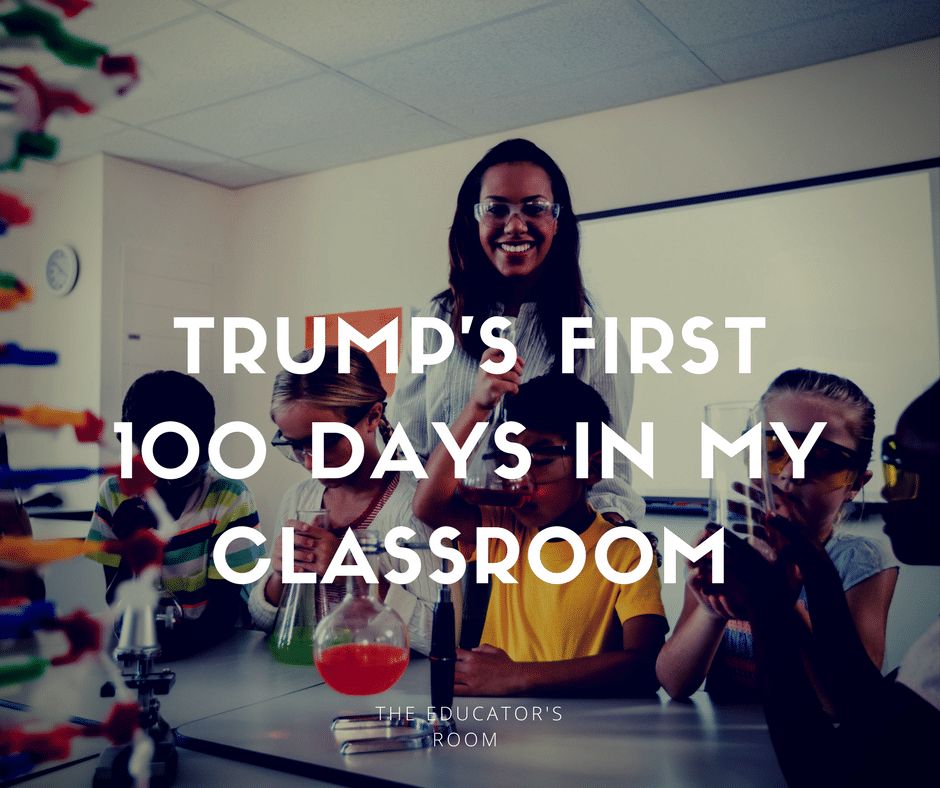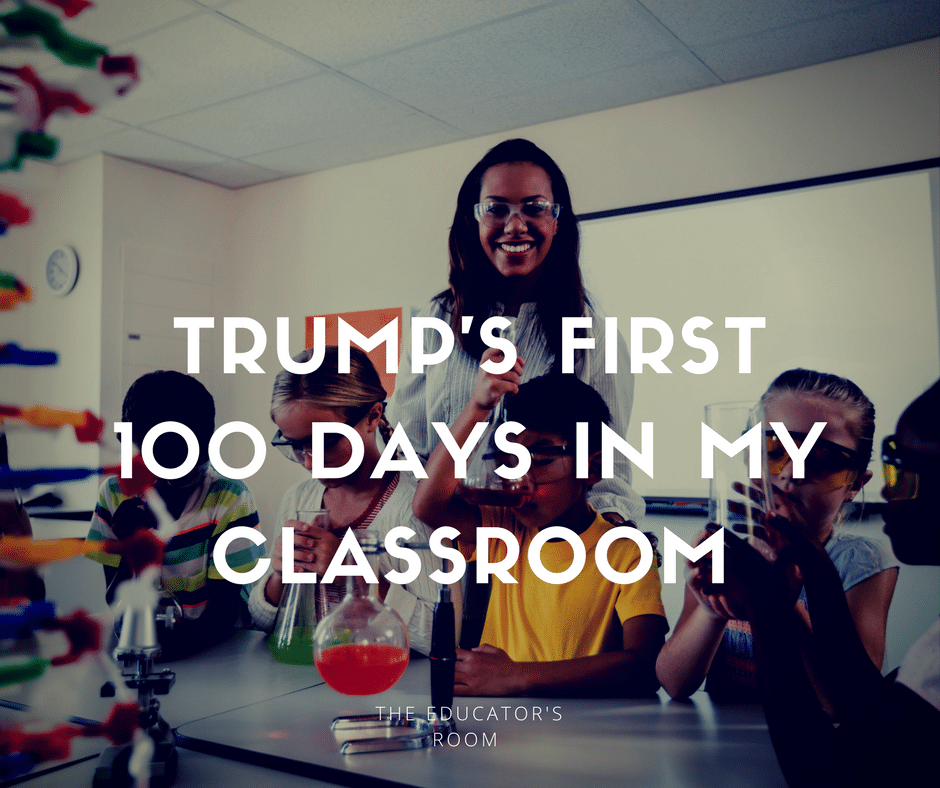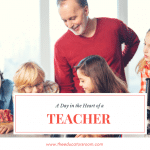When I reflect on Donald Trump’s first 100 days I think back to May of 2016. At the time I wrote that teachers had a moral obligation to stand up to Donald Trump’s hate speech. I did not write this as a Democrat or because of any other partisan or political affiliations. I wrote this because as educators we know that bullying and belittling others is unacceptable, and Trump’s behavior toward Muslims, immigrants, women, and practically every marginalized community in our country fits this description. Any educator who ascribes a political connotation to this anti-bigotry stance is speaking purely from a space of cognitive dissonance.
Even so, in the space after the election, there were voices calling for patience or to give Donald Trump the benefit of the doubt. There were those who hoped that the office of the presidency might temper Donald Trump’s rhetoric and perhaps his policies.
But, Maya Angelou’s famous quote tells us everything we need to know about this delusion: “When someone shows you who they are, believe them the first time.” Donald Trump showed us who he was the day he announced his candidacy and nothing about his behavior has changed since his inauguration.
[bctt tweet=”“When someone shows you who they are, believe them the first time.” username=”EducatorsRoom”]
When Trump was actually elected, it felt like a cataclysm in my classroom. On November 9th, the mood among my 4th graders (and myself) was one of fear, anger, and anxiety. But, since the inauguration, my students have been more or less silent on the topic.
In my own mind, I wrestle with how to address Trump in the classroom. I fear “normalization” of a president who has demonized so many, including people who look like and pray like the kids in my classroom. I want to make sure that my students know that our classroom is a place where they can voice their feelings. I will not cross the line that necessitates my political neutrality as their teacher, but I will allow them to say what’s on their mind. But at the same time, I won’t force the conversation.
The weekend after the Muslim Ban protests, I asked my students if they had heard about them on the news. Only two or three were familiar with the events. We talked briefly about why people were protesting, what it means to be a refugee, and how it might feel to be seeking safety. But overall, my students didn’t seem that knowledgeable about events in the news — whether it was the stripping of protections for transgender students or the reauthorization of the Dakota Access Pipeline — and I don’t feel the need to add stress or anxiety to their lives when they’re already being targeted by Trump’s policies and hate speech.
When I did raise issues, it was in an effort to empower them, and I did not discuss Trump directly. On February 28th, New York City educators took part in an Immigration Rights Day of Action. In my classroom, we talked about the members of our class community who were born in other countries or whose families immigrated. We talked about the value of diversity and multiculturalism and the ways in which immigration has enriched our classroom, our school, and our city. Then I gave them the choice to wear “buttons” that showed solidarity with immigrants. Every student chose to wear one.
Soon after on March 8th, I tried to acknowledge “A Day Without a Woman” in my classroom. We started the day by writing thank you notes to women in our lives. My students wrote heartfelt letters to their sisters, mothers, and grandmothers. One of my students wrote a letter of appreciation to herself. During morning meeting we discussed the types of labor — paid and unpaid — done by the women in our lives. Then in math workshop, we used area models to visualize the wage gap.
So in small ways, I’ve tried to teach resistance to my students. That is I’ve tried to teach them to feel appreciation and love for the differences in our community, and to examine and fight the creep of bias and bigotry into our lives.
But we haven’t discussed Trump in the last 100 days. Nor have we discussed Betsy DeVos, Jeff Sessions, or Steve Bannon. For me, these are scary times populated by scary people, but my students are still children, and if Trump is not on their mind, I would rather keep it that way.







